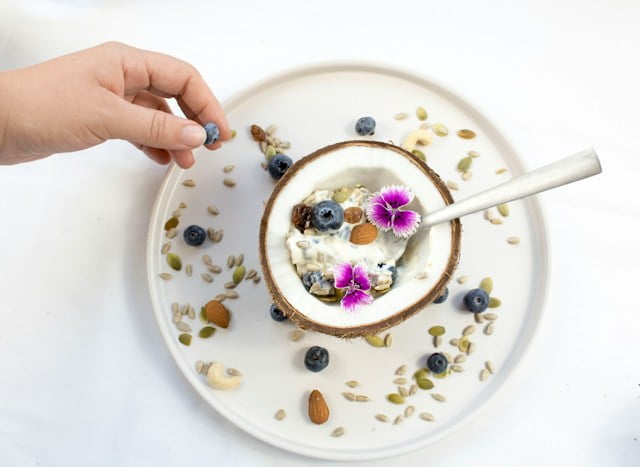A robust immune system is more crucial than ever in the modern environment, particularly for young people. As guardians and parents, we want to make sure that our children have the strongest defence possible against diseases and illnesses. It is vital to comprehend the function of immunity in children for this reason.
Children are continuously exposed to numerous diseases and viruses, making their immune systems a key line of defence. Strong immunity helps shield kids from common childhood ailments like ear infections, the flu, and colds. It has a big impact on their general health and wellbeing as well.
However, what elements go into a child’s immunity? While genetics undoubtedly has an impact, their immune response is also influenced by several other important factors. A strong immune system is largely supported by nutrition. Providing kids with a healthy, well-balanced diet full of whole grains, fruits, vegetables, and lean meats helps boost their immunity.
Regular exercise also increases the body’s generation of cells that fight illness and improves circulation. Encouraging youngsters to play actively or take part in sports can boost their immune systems in the long run.

Another crucial component of a child’s healthy immunity is getting enough sleep. The body heals itself and makes proteins called cytokines—which aid in controlling the immune response—while we sleep. Ensuring that your child receives adequate quality sleep each night can greatly help to their general well-being.
Even while these lifestyle choices are essential for naturally boosting children’s immunity, there may be times when further help is required. This is where children’s immune health-specific vitamins come into play. Notable vitamins and minerals included in these supplements include probiotics, zinc, vitamin C, and vitamin D, all of which have been shown to enhance immune function.
Diet’s Impact on Children’s Immunity
Food has a critical influence on a child’s immune system. A child’s immune system is supported by a well-balanced and nutrient-rich food, which aids in their ability to fend off illnesses and maintain their health.
The vitamins, minerals, and antioxidants required for the growth and operation of the immune system are provided by a healthy diet. Vitamin C-rich foods include bell peppers, citrus fruits, and strawberries, which assist increase the development of white blood cells that fight diseases.

Including foods strong in vitamin A, such as spinach, carrots, and sweet potatoes, helps improve the body’s first line of defence against respiratory infections by strengthening the mucosal membranes of the respiratory tract.
Zinc-rich foods including lean meats, beans, nuts, and seeds can also boost the activity of immune cells and speed up the healing of wounds.
Fermented vegetables or yoghurt, for example, are great sources of probiotics and should be part of a balanced diet. Probiotics support the upkeep of a balanced gut microbiota, which is essential for controlling immunological responses.

Limiting processed meals that are heavy in sugar or bad fats is crucial since they might impair immunity. Rather, to giving kids the nutrients they need for the best possible immunity, urge them to eat lots of fruits and vegetables, complete grains, and lean meats like fish or fowl.

Children’s Foods that Boost Immunity
A healthy, well-balanced diet is essential to their development, growth, and general well-being.
For children to receive the nutrients they need to support their physical and cognitive growth, they must have a proper diet. Maintaining a robust immune system, avoiding chronic illnesses, enhancing attention and concentration, and encouraging optimal growth are all aided by eating a nutritious diet.
Making sure kids get a range of foods from several dietary categories, including whole grains, fruits, vegetables, lean meats, and dairy products, is crucial. This guarantees that kids get a variety of vital vitamins, minerals, and antioxidants that their body needs to function properly.

Maintaining excellent health also requires avoiding the use of sugary snacks, processed meals high in saturated fats, and artificial chemicals. These bad eating habits can aggravate dental problems, impair focus, lead to obesity, and cause other health concerns.
By serving wholesome meals at home and setting a good example for their children, parents have a significant influence on the eating habits of their offspring. Parents may provide the groundwork for their children to make healthy food decisions for the rest of their lives by modelling appropriate eating habits at a young age.
Adding Imagination to Food for Kids
It may be difficult to encourage youngsters to eat healthily, but with a little ingenuity and creativity, mealtime can be made to be joyful.
Getting kids involved in food preparation is one strategy. Giving children age-appropriate responsibilities like chopping vegetables, combining ingredients, or even plating meals helps them feel excited about the food they are about to consume and gives them a feeling of ownership.
Food may also be made more enjoyable for kids by arranging it in an enticing and eye-catching fashion. Mealtime may be made more interesting and engaging by using colourful fruits and vegetables, arranging them in entertaining shapes or patterns, or preparing themed meals.
Furthermore, adding humour or narrative to mealtimes can improve the whole experience.
Using interactive mealtime accessories like compartmentalised plates or bento boxes may also provide a surprise and discovery aspect to meals. These gadgets offer portion control while enabling inventive meal pairings.
You may also like:
Ultra-Processed Foods: The Alarming Truth You Need to Know
Conquer Chronic Back Pain: Expert Tips for a Healthier Spine

